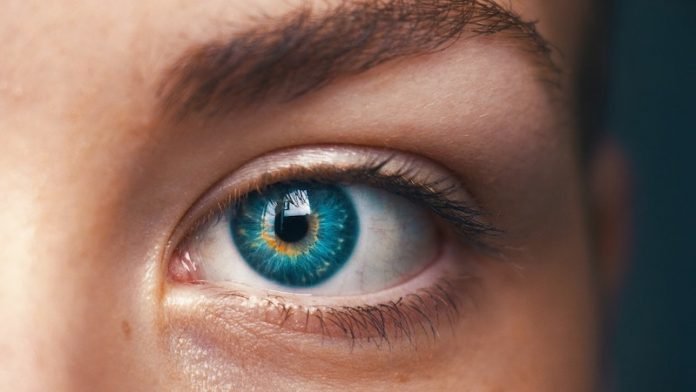
Diabetic retinopathy is caused by damage to the blood vessels in the tissue at the back of the eye (retina).
Poorly controlled blood sugar is a risk factor.
Early symptoms include floaters, blurriness, dark areas of vision, and difficulty perceiving colors. Blindness can occur.
In 1958, a team from Duke University showed with fundus photographs the reversal of diabetic retinopathy following adherence to a regimented rice/fruit dietary program.
44 of the 100 patients had classical diabetic retinopathy. Thirty of the 44 patients were assigned to a rice diet. The average observation/treatment period was 22 months.
Diabetic retinopathy was considered improved if the sequential fundus photographs showed marked regression of ‘diabetic’ hemorrhages, exudates, aneurysms, or retinitis proliferates.
For 13 of 44 patients with specific diabetic retinopathy findings, improvement in the fundus picture became apparent for both eyes during the period of observation.
For 7 patients the retinopathy cleared in only 1 eye. Nine patients showed an indication of retinopathy progression. For 15 cases there was no change.
The Rice Diet Healthcare Program, based on the rice diet originally developed by Dr. Walter Kempner in 1939, has been shown over the course of the past 75 years to effectively treat diabetes, kidney disease, hypertension, heart failure, sleep apnea, and obesity.
The rice diet consists of rice, grains, fruits, vegetables, and beans, with an option of fish. The diet provides 800-1000 calories a day, 5-10 percent of which derive from fat and 5-20 percent from protein.
Sodium intake is extremely low on the rice diet, which contributes to the diet’s success but also mandates careful medical monitoring.
For more information about how diet could reverse diabetic eye disease, please check this video:
If you care about diabetes, please read studies about a new drug for diabetic eye disease and common diabetes drugs that could strongly cut COVID-19 death risk.
For more information about diabetes, please see recent studies about daily habits that could effectively prevent type 2 diabetes, and results showing eating before this time may reduce the risk for type 2 diabetes.



